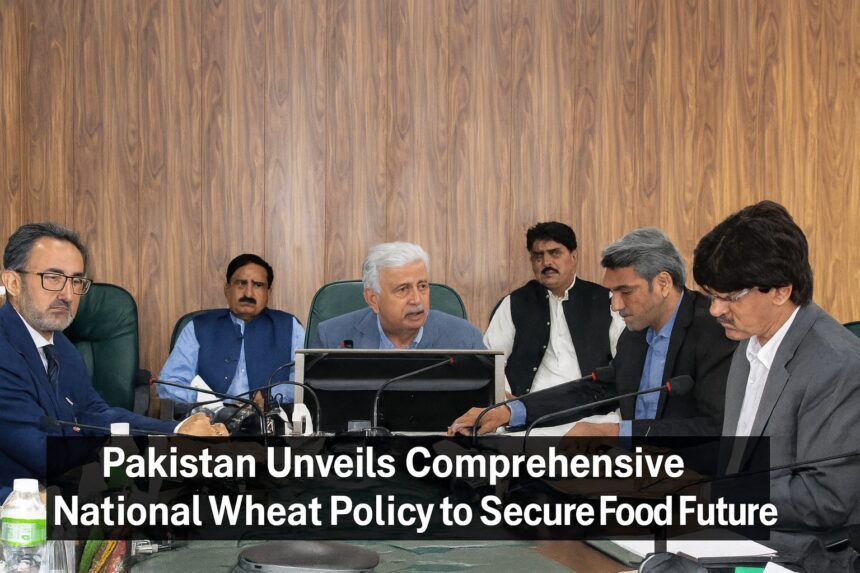The Government of Pakistan has unveiled a long-term National Wheat Policy aimed at securing the country’s food supply, protecting farmers’ incomes, safeguarding consumers, and boosting resilience to climate and market shocks. The policy sets out measures on pricing, targeted subsidies, modern storage, research into climate-resilient varieties, and nutrition interventions to reduce malnutrition and preserve grain quality.
The policy frames wheat as a strategic staple and seeks to align domestic producer prices with international levels to incentivize higher outputs while protecting vulnerable consumers. Under the plan, middle- and higher-income households will pay market rates for wheat, while low-income families will receive targeted subsidies and financial support shared between federal and provincial governments.
A major pillar of the roadmap is strengthening strategic reserves through modern grain silos and improved storage techniques. The government will focus on managing national reserves, maintaining quality standards, and upgrading the supply chain to reduce post-harvest losses and protect stocks from environmental risks.
Research and development are central to the strategy. The policy promotes breeding and dissemination of climate-resilient, high-yield wheat varieties and supports farmer welfare programs to increase productivity and adapt to changing weather patterns. Investments in modern storage systems are intended both to preserve quality and to support long-term food security.
Nutrition features prominently in the plan. With widespread deficiencies of zinc, iron, and vitamins among women and children, the policy encourages fortification of wheat and use of multi-grain flours to address malnutrition and childhood stunting. Improved storage and handling are also expected to help preserve the nutritional value of wheat-based products.
Implementation will proceed through inclusive consultations with provincial authorities, farmer organizations, and the food industry to ensure broad ownership and effective execution. The government has emphasized that measures will aim to guarantee fair farm profits, stable consumer prices, and sufficient buffer stocks to prevent shortages.
Officials stressed that the policy is designed to align with international best practices and to strengthen Pakistan’s capacity to withstand future climate risks and market disruptions, underscoring the administration’s commitment to long-term food security.











